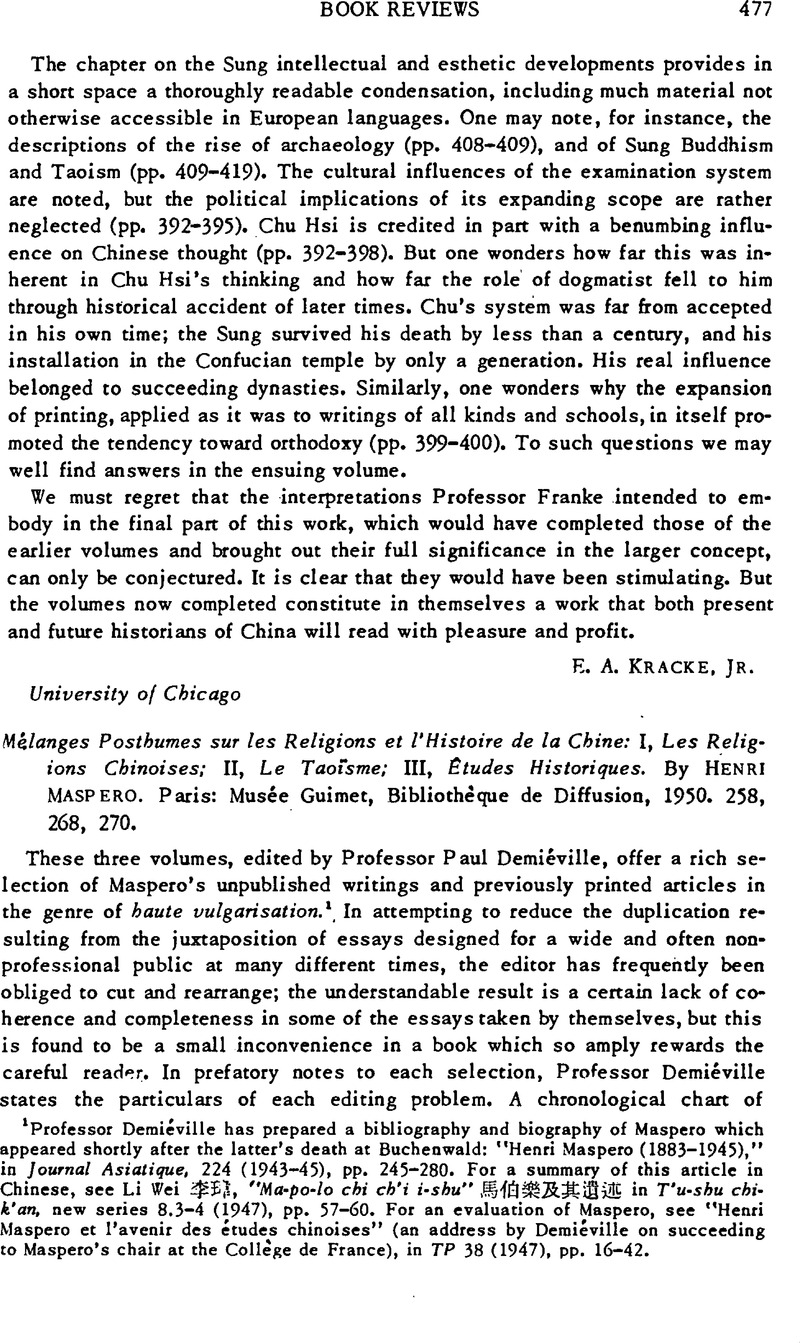No CrossRef data available.
Article contents
Mélanges Posthumes sur les Religions et l'Histoire de la Chine: I, Les Religions Chinoises; II, Le Taoĩsme; III, Études Historiques. By Henri Maspero. Paris: Musée Guimet, Bibliothèque de Diffusion, 1950. 258, 268, 270.
Review products
Published online by Cambridge University Press: 23 March 2011
Abstract

- Type
- Book Reviews
- Information
- Copyright
- Copyright © The Association for Asian Studies, Inc. 1952
References
1 Professor Demiéville has prepared a bibliography and biography of Maspero which appeared shortly after the latter's death at Buchenwald: “Henri Maspero (1883–1945),” in Journal Asiatique, 224 (1943–45), pp. 245–280. For a summary of this article in Chinese, see Li Wei ![]() , “Ma-po-lo chi ch'i i-shu”
, “Ma-po-lo chi ch'i i-shu” ![]() in T'u-shu chik'an, new series 8.3–4 (1947), pp. 57–60. For an evaluation of Maspero, see “Henri Maspero et l'avenir des etudes chinoises” (an address by Demieville on succeeding to Maspero's chair at the College de France), in TP 38 (1947), pp. 16–42.
in T'u-shu chik'an, new series 8.3–4 (1947), pp. 57–60. For an evaluation of Maspero, see “Henri Maspero et l'avenir des etudes chinoises” (an address by Demieville on succeeding to Maspero's chair at the College de France), in TP 38 (1947), pp. 16–42.
2 For further discussion of this and other matters of interest in the “Essai” see J. J. L. Duyvendak's review of the Melanges posthumes in TP 40 (1951), pp. 372–390.
3 Distinct from “La vie privee en Chine a l'epoque des Han,” in Revue des Arts Asiatiques, VII (1932), pp. 185–201.
4 “Le regime féodal et la propriété fonciere dans la Chine antique,” from Revue de I'Institut de Sociologie XVI, 1, Brussels, 1936; “Les regimes fonciers en Chine, des origines aux temps modernes,” Recueil de la Societe jean Bodin, II, Brussels, 1937, pp. 265-314; “Les termes designant la propriété foncière en Chine,” Recueil de la Société Jean Bodin, III, 1938, pp. 287–301. The present edition has the advantage of supplying characters in the index for all Chinese terms.
5 From Maspero's introduction to Les Empereurs Mandchous, Mémoires de la Cour de Pékin, the French translation of E. Backhouse and J. O. P. Bland, Annals and Memoires of the Court of Peking, London, 1914.


